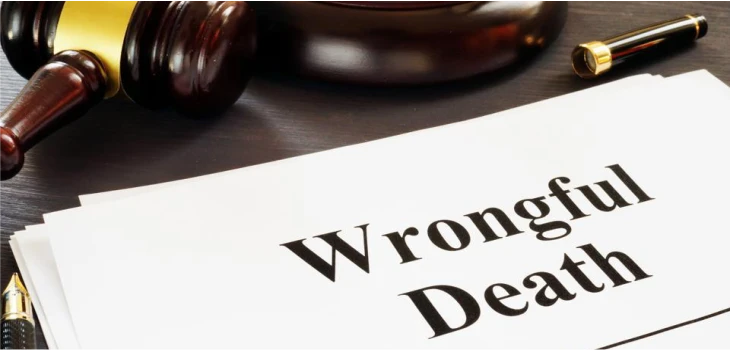The chances of winning a wrongful death suit depend on various factors, including the specific laws and regulations of the jurisdiction where the lawsuit is filed, the evidence and facts of the case, and the legal arguments presented by the parties involved.
Success in wrongful death lawsuit cases often depends on proving that the defendant’s actions, negligence, or wrongdoing directly caused the death and that the plaintiff’s claim is supported by sufficient evidence.
An experienced wrongful death lawyer with a proven track record of handling wrongful death cases can provide you with compassionate legal support and vigorously pursue full and fair compensation to help you achieve closure and justice.
How to Win a Wrongful Death Lawsuit
While each case is unique, some of the general steps that may increase your chances of winning a lawsuit include:
- Establish legal standing: To bring a wrongful death lawsuit, you must have legal standing, which typically means you must be a surviving family member or beneficiary of the deceased person
- Prove liability: You will need to prove that the party or parties being sued were legally liable for the death.
- Follow legal procedures: Wrongful death lawsuits are subject to specific legal procedures, including filing deadlines, rules of evidence, and court appearances.
Who Can File a Wrongful Death Claim?
Wrongful death lawsuits are typically brought by the surviving family members or representatives of the deceased person. The specific parties who can file a wrongful death claim may include:
- Spouse or domestic partner
- Children
- Parents
- Other family members or dependents
- Personal representative or estate
How are Wrongful Death Settlements Paid Out?
Wrongful death settlements, which are reached through negotiations between the parties involved in a wrongful death lawsuit, can be paid out in various ways depending on the terms of the settlement agreement.
- Lump sum payment: This means that the defendant, or their insurer, pays the settlement amount in a single payment. The plaintiff receives the entire settlement amount upfront, and there are no further payments or obligations.
- Structured settlement: These settlements involve the defendant or their insurer making periodic payments over a specified period of time, often in the form of an annuity.
- Combination of lump sum and structured settlement: In this type, a portion of the settlement amount may be paid upfront as a lump sum, with the remaining amount paid out over time in periodic payments.
- Special needs trust or other financial arrangements: In some cases, particularly when the wrongful death settlement involves a substantial amount of money and the plaintiff has special needs or financial considerations, the settlement may be paid into a special needs trust or other financial arrangements.
How Do You Prove Wrongful Death?
There are generally four elements that need to be proved in wrongful death lawsuits. They include:
- Duty of care: Duty of care refers to the legal obligation that a person or entity has to exercise reasonable care and take appropriate actions to prevent harm to others.
- Breach of duty of care: This involves showing that the defendant failed to exercise the level of care that a reasonably prudent person or entity would have under similar circumstances.
- Causation: This involves demonstrating that a defendant’s breach of duty of care directly caused or contributed to the death of the person. This involves establishing a link between the defendant’s actions or omissions and the death.
- Damages: It’s also essential to prove the damages suffered as a result of the wrongful death. This typically involves presenting evidence of the economic and non-economic losses suffered by the deceased person’s surviving family members or beneficiaries, such as medical expenses, funeral costs, lost income, loss of financial support, pain and suffering, loss of companionship, and emotional distress.
What Percentage of Wrongful Death Cases Go To Trial?
Like other types of personal injury cases, wrongful death claims may or may not go to trial depending on the circumstances surrounding the case. More recent studies and anecdotal evidence suggest that the percentage of cases that go to trial still remains low.
How Long Does it Take to Settle a Wrongful Death Suit?
The wrongful death lawsuit timeline can vary greatly depending on various factors, including the complexity of the case, the parties involved, the legal procedures, and the willingness of the parties to negotiate and reach a resolution.
While some wrongful death cases may be resolved relatively quickly, others can take a significant amount of time, ranging from a few weeks to years.
Have Questions About Filing a Wrongful Death Suit? Contact Our Law Firm.
To file a wrongful death suit, certain elements need to be established, which may vary depending on where the case is filed. If you are considering a wrongful death lawsuit and are wondering whether you have a valid claim in Philadelphia, you can discuss your legal options with The Law Offices of Samuel Fishman.
Our dedicated team of lawyers has over 30 years of experience in pursuing compensation for cases involving wrongful death. Schedule a free consultation by calling 215-883-8213 or completing our contact form online.

